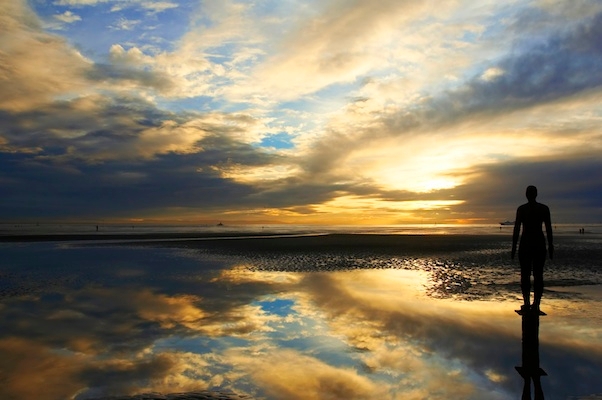‘Distracted from distraction by distraction’ was one way in which T.S. Eliot described the inhabitants of ‘this twittering world’ in his Four Quartets. Eliot’s words seem more accurate today than even he might have expected. With the apparently ceaseless intrusion into our lives of permanent media feeds, gossip reported as news and news reported as gossip, it has never been easier to become lost by, and in, distraction. Not to mention the twittering. Easter briefly quietens the babble.
Unlike Christmas, it’s a story that doesn’t lend itself to much commercial fuss: no kings or presents. Easter is a story of sacrifice, torture, abandonment and death — and, through it all, triumph over that death. Even in the 21st century; despite all the chocolate eggs, Easter gives us pause.
And it’s Easter, not Christmas, that makes Christianity such a radical religion. In a world where we are invited to worship strength and power, the symbol of churchgoers is a man on a cross: defeated, despised and rejected. The story of the Passion and Resurrection is one of pain as well as joy, the worst suffering before the greatest jubilation. If you’re not a believer, there’s no story which has more to say about the hope and despair of being human. If you are, it’s the most important event in history.
The Resurrection is the still centre of the Christian faith. For in the hours between the utmost dejection and abandonment on the cross and the ultimate triumph of the resurrection lies the central force and propulsion of the Christian message. The miraculous transformation of the darkness of Good Friday into the joy of Easter morning has created and renewed worshippers for 2,000 years. There’s a beauty in this truth. As Roger Scruton writes further on in the magazine, ‘The beautiful and the sacred are connected in our feelings.’ The Resurrection has inspired our greatest artists, thinkers and musicians. It’s been the foundation stone of the great buildings of Christian civilisation.
Bach expressed the moment in his B–minor Mass, when the desolation of the ‘Crucifixus’ give way to the ecstatic outbursts of the ‘Et Resurrexit’. This triumph of life over death has been the subject of almost every major artist from the earliest icon-workers through Piero della Francesca and Titian to Stanley Spencer.
The unexhausted force of that narrative still haunts artists and thinkers today, though they may consider themselves irreligious. Cormac MacCarthy’s Catholic sensibility shines through his fiction and the films made of his work. Go to Crosby beach in Merseyside and look at Antony Gormley’s figures staring out to sea; remember his ‘Ecce Homo’ Christ figure perched on the fourth plinth.
But for all our spiritual instincts, Britain is now the least religious country in the western world. The British Social Attitudes Survey shows that 64 per cent of us never set foot in any place of worship over an average year. Between the 2001 census and the 2011 one, the number of people identifying as ‘Christian’ fell by 10 per cent. Our secularism was summed up by the BBC’s coverage of the conclusion of the Papal Conclave: when Pope Francis said the Lord’s Prayer and the Hail Mary, the translator was utterly thrown, as if hearing them for the first time. The gap between the religious world and the secular is growing all the time.
Christianity only really punctures the media bubble when there’s some scandal to be picked over or a priest’s sexual misdemeanour to feel outraged about. People have become used to seeing Christian leaders either apologising or grandstanding — doing anything other than preaching the gospel to the believers or finding ways to tell this most extraordinary of stories to those who are not.
Our society is poorer as a result. In fact, the worse particular priests behave, and the worse the reputation of any Christian church, the louder the rest should proclaim the gospel. In a society which often seems ever-increasingly unforgiving of people when they let themselves down – as human people do – the memory that the Christian God even sacrificed his own son to redeem mankind through divine forgiveness is something which still has the power to shock and inspire.
In the last month we have seen a new Archbishop of Canterbury and a new Pope installed. Both have the opportunity — and have expressed the desire — to renew their churches and to preach the gospel. This means, in Britain these days, taking the word of God to people who may only have the shakiest idea of who Christ was, or that He existed at all — but this is the job which Archbishop Welby and Pope Francis both entered the clergy to do.
As certainties that have guided our country and our continent for years begin to shake, and as the distractions of our age forever tempt us towards the shallow and the ephemeral, Easter is an opportunity to think once more of greater, older and deeper things. Beginning with an empty tomb and a stone rolled back.






Comments